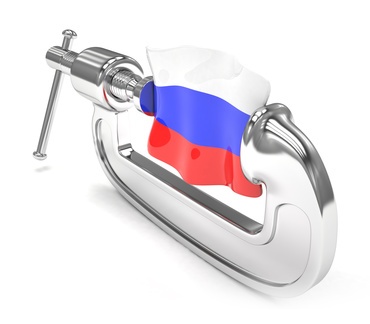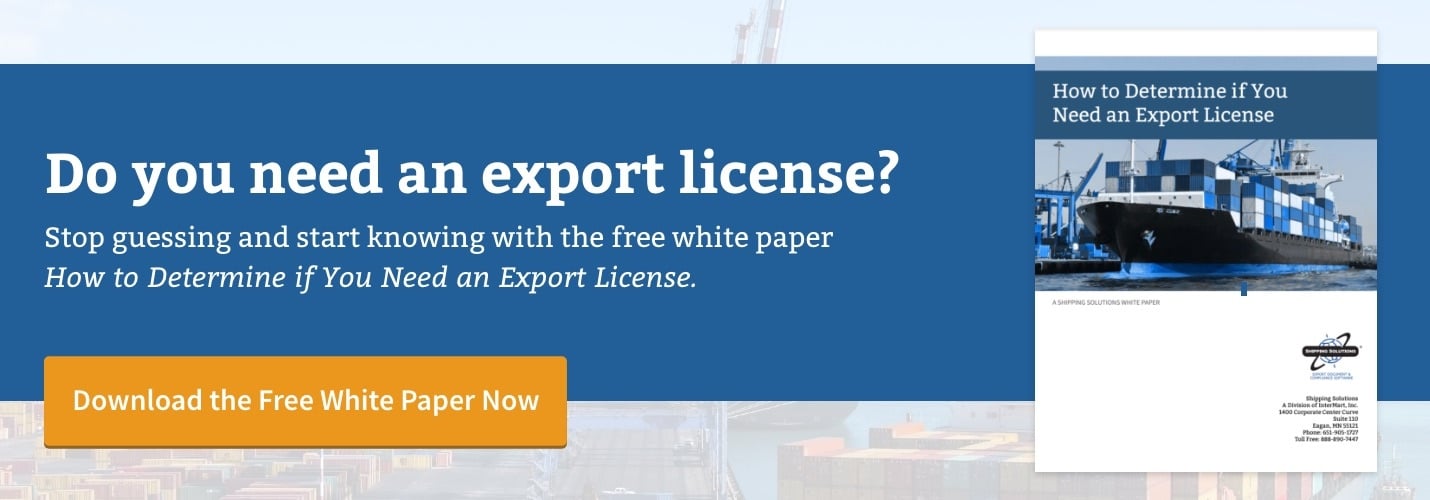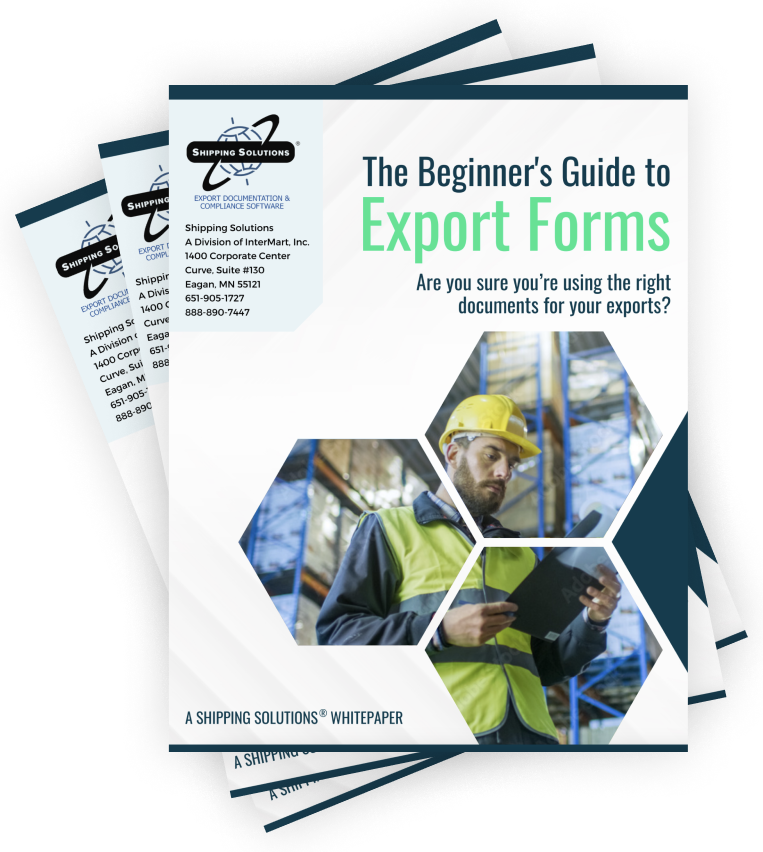The International Trade Blog Export Compliance
5 Steps for Staying Compliant with U.S. Sanctions against Russia
On: September 28, 2015 | By:  Renee Roe |
4 min. read
Renee Roe |
4 min. read
 Export compliance can be tricky. As David Noah mentioned in his blog post, Checking Lists Isn't Enough for Export Compliance, there’s no one single place you can reference to make sure you’re avoiding exporting to people or countries illegally. This is certainly the case with the U.S. sanctions against Russia for their actions against Ukraine.
Export compliance can be tricky. As David Noah mentioned in his blog post, Checking Lists Isn't Enough for Export Compliance, there’s no one single place you can reference to make sure you’re avoiding exporting to people or countries illegally. This is certainly the case with the U.S. sanctions against Russia for their actions against Ukraine.
Although the U.S. government has been regularly updating the Russia sanctions since 2014, and issuing advisories as recently as July, they have provided little guidance on exactly how industry is supposed to successfully meet the requirements of the sanctions.
BPE Global is regularly being asked for insight into industry best practices and for guidance on how to proceed. Each client has different circumstances that impact their approach to these unique and difficult sanctions regulations.
We believe that the U.S. government is a bit out of touch regarding the difficulties of staying compliant while running a successful and profitable business. We love the concept of Export Control Reform, but it seems that as soon as positive changes begin to be implemented, roadblocks get thrown up that complicate the ability of businesses to comply while staying competitive.
So take a deep breath, sit back, and let’s review five steps to export compliance in this region:
1. Russia/Ukraine Customer Analysis
When was the last time you ran a report to see who your customers in Russia and Ukraine/Crimea are? Are you exporting directly to these customers, or do your channel partners do the exporting and provide you with point of sale reports at the end of the sales cycle?
2. Risk Analysis
What is your historical volume of exports into the region? Do your channel partners have solid trade compliance departments? Have you discussed the sanctions with them to ensure they are even aware of them? Have they given you their detailed compliance procedures to ensure compliance with U.S. (and E.U.) requirements? Have you conducted an audit to confirm they are screening their orders and obtaining licenses when required; are they declining orders when circumstances require?
3. Global Trade Management (GTM) System Settings
Have you set up your GTM system to put a hold on all orders for Russia and Ukraine for more screening? Are you reviewing orders as they come in from new customers and again prior to each shipment to this region? Most GTM systems are only capable of holding all orders for Ukraine. You must manually review each order to determine if a customer is actually in Crimea. Additionally, GTM systems do not typically handle the issue of ownership, which I’ve listed in item five below.
4. Are Licenses and License Exceptions Being Properly Applied?
Are you following the fundamentals of export compliance? Have you determined the correct Export Control Classification Number (ECCN) and Schedule B or HTS number? Do you know the end-use and end-user of your products? No longer may you necessarily just use your favorite license exceptions. Review what license exceptions you have pre-loaded in your parts database or shipping system, and review what license exceptions you are regularly using. Now may be the time to re-read the sanctions and regulatory updates to determine if your license exceptions and existing licenses are still valid.
5. Entities Owned by Persons Whose Properties and Interests in Property Are Blocked
This is a big one, and from the inquiries we are receiving, there definitely seems to be some confusion. Enough so that OFAC issued additional guidance last August. Unfortunately it appears that this notice was either missed or misunderstood by the trade.
If one or more people who have been blocked directly or indirectly own 50% or more of an entity, that entity is also considered to be a blocked person. The property and interests in property of such an entity are blocked regardless of whether the entity itself is listed in the annex to an Executive Order or otherwise placed on the OFAC's list of Specially Designated Nationals.
This means is that your customer as an entity may not be blocked itself, but you could get caught up in a violation if your customer is owned, in aggregate, directly or indirectly by a blocked party or parties with a 50% or more ownership stake. The question, of course, is why OFAC itself has not done the research on these companies and updated its list of blocked parties as necessary. Instead each firm must do its own analysis, which is resource intensive.
Be careful and don’t presume that your GTM screening tools that you subscribe to or any of the restricted party or other lists you manually check will catch these. At this time we are not aware of any GTM provider who is evaluating companies to see if they meet the aggregate rule and then adding them to their private/custom restricted party screening lists for export holds.
Once you have conducted this internal review of Russia sanctions, you can develop a strategy to implement appropriate measures to strengthen your compliance with these sanctions.

About the Author: Renee Roe
Renee Roe, Director. As a director at BPE Global, Renee is armed with over 25 years of practical expertise in the field of international trade to guide our clientele through the often challenging regulatory roadblocks of cross-border transactions. Initially working in imports of consumer goods, Renee went on to ultimately own her own import business. She also has experience working in international transportation for the world’s largest package carrier, has owned her own export consulting business, and has worked in high technology for 14 years in such operational functions as procurement, logistics, traffic and, ultimately, trade compliance. She is a subject matter expert in establishing the framework for taking small companies public, including setting up the foundation for a robust trade compliance program. She also specializes in GTM solution selection and implementation, traffic/logistics issues and on-demand operational support for firms which do not have the budget for full-time headcount.
Prior to joining BPE Global, Renee was a Global Trade & Compliance Officer for Fortinet, Inc. Her achievements included building the foundation for their compliance program, development of an EMCP manual, and process improvements such as trade automation integration, as well as participating in key activities leading to their recent Initial Public Offering. Prior to Fortinet, Renee was Global Trade & Compliance Manager at Extreme Networks, Inc. where she also oversaw development and execution of corporate trade compliance policies and guidelines. At Extreme she also held various positions in Operations during their startup phase, including Global Traffic & Logistics Manager. Earlier in her career she worked for United Parcel Service, the world's largest package delivery company and a leading global provider of specialized transportation and logistics services. She has a degree in International Management, magna cum laude, from Menlo College.
Renee is also active in several international trade associations. She is a member and has served on the Board of Directors for WIT-NC as their Volunteer Director, and Membership Director, and is a member of American Association of Exporters and Importers, the Professional Association of Importers and Exporters, and the International Compliance Professionals Association.


